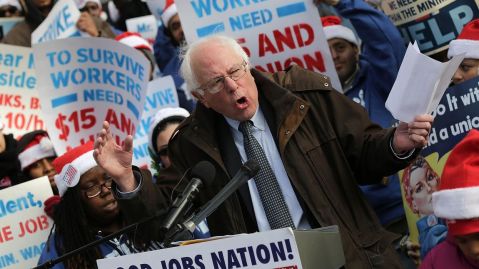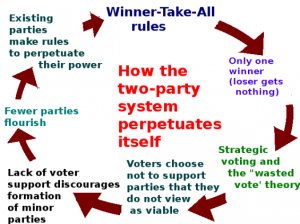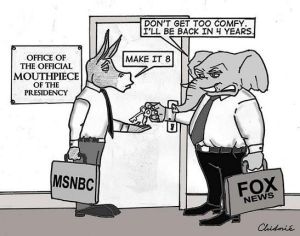Obama’s failure to prosecute torture rears its ugly head in Republican race
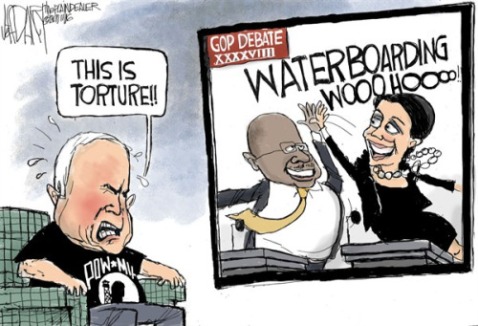
In the clown show known as the Republican presidential primary race, candidates are providing a clear – if, albeit, unintentional – case as to why prosecutions of the Bush-era CIA torture program are absolutely essential, and why it is so damaging that the Obama administration has shirked its responsibilities in this regard for more than seven years.
As human rights groups have long maintained, prosecuting Bush administration and CIA officials involved with the torture of terrorism suspects in the post-9/11 period is necessary so that torture is not repeated in the future by subsequent administrations who – because of previous decisions not to prosecute – may consider themselves above the law.
Indeed, this is precisely why there is a requirement under international law for allegations of torture to be investigated and prosecuted – so that torture does not become a “policy option” to be utilized or shelved depending on the political whims of the day.
This is a point that Amnesty International, for one, drove home following the release in late 2014 of a portion of the U.S. Senate’s report on the use of torture by the CIA during the Bush administration. In a statement entitled “Senate summary report on CIA detention programme must not be end of story,” Amnesty lamented that limited Justice Department investigations into CIA interrogations were ended in 2012 with no charges.
Human Rights Watch concurred, noting that unless the release of the Senate report leads to prosecutions, torture will remain a “policy option” for future presidents.
Needless to say, these exhortations have largely fallen on deaf ears, with no prosecutions launched whatsoever. Instead, the U.S. Congress responded with a largely meaningless and toothless “reaffirmation” of the ban on the torture – a totally redundant and unnecessary piece of legislation since torture has long been unambiguously banned under international law, the United States Constitution and U.S. statutory law.
Now, just as HRW, Amnesty and others have warned, this lack of law enforcement is having the predictable effects: contenders for the Republican nomination – including very possibly the next president of the United States – are making clear their plans to bring back waterboarding and other “enhanced interrogation” techniques, and to once again make torture the official policy of the United States government.
In the presidential debate on Jan. 28, for example, Sen. Marco Rubio insinuated that under his administration, indefinite detention and torture would be most welcome. “If we capture terrorists,” he said, “they’re going to Guantánamo, and we will find out everything they know.” Despite this rather oblique allusion to bringing back the policy of torture which officially ended in 2006, none of the other candidates, or the debate moderators, even raised an eyebrow.
As if that wasn’t bad enough, the debate on Feb. 6 included a virtual competition among candidates Marco Rubio, Ted Cruz and Donald Trump to see who would be the most brutal and lawless in the treatment of suspected terrorists. All three candidates voiced support for waterboarding, with Trump pledging to reintroduce the technique – and introduce even more draconian and lawless techniques – if elected: “I would bring back waterboarding, and I would bring back a hell of a lot worse than waterboarding,” he said.
As the Huffington Post explained, “Trump was out-brutalizing Cruz, who said he would only use waterboarding sparingly, in emergency scenarios.”
Rubio also reiterated his support for waterboarding, saying that terrorism cases should not be held to the same humane legal standards of traditional law enforcement. In fact, he explicitly stated that interrogating suspected terrorists is not a law enforcement function:
Well, when people talk about interrogating terrorists, they’re acting like this is some sort of law enforcement function. Law enforcement is about gathering evidence to take someone to trial, and convict them. Anti-terrorism is about finding out information to prevent a future attack so the same tactics do not apply.
And, it is true, we should not be discussing in a widespread way the exact tactics that we’re going to use because that allows terrorist to know to practice how to evade us.
He also made it clear that the travesty of justice of Guantanamo should be kept open indefinitely:
But, here’s the bigger problem with all this, we’re not interrogating anybody right now. Guantanamo’s being emptied by this president. We should be putting people into Guantanamo, not emptying it out, and we shouldn’t be releasing these killers who are rejoining the battlefield against the United States.
As for Trump, when pressed this weekend on his statements about bringing back waterboarding and devising even more brutal torture methods, he decided to double down rather than backtrack.
On Sunday, the real-estate-mogul-turned-reality-TV-star-turned-presidential-contender appeared on “This Week” with George Stephanopoulos. The appearance included this remarkable exchange on torture:
STEPHANOPOULOS: As president, you would authorize torture?
TRUMP: I would absolutely authorize something beyond waterboarding. And believe me, it will be effective. If we need information, George, you have our enemy cutting heads off of Christians and plenty of others, by the hundreds, by the thousands.
STEPHANOPOULOS: Do we win by being more like them?
TRUMP: Yes. I’m sorry. You have to do it that way. And I’m not sure everybody agrees with me. I guess a lot of people don’t. We are living in a time that’s as evil as any time that there has ever been. You know, when I was a young man, I studied Medieval times. That’s what they did, they chopped off heads. That’s what we have …
STEPHANOPOULOS: So we’re going to chop off heads …
TRUMP: We’re going to do things beyond waterboarding perhaps, if that happens to come.
Interestingly, both Hillary Clinton and Bernie Sanders – the only two remaining candidates for the Democratic Party – appeared on the same programs as Trump on Sunday, and while they commented freely on other aspects of the Republican debate, neither said anything about Trump’s call for torture.
Although it is only a matter of speculation, perhaps they were a bit reticent to comment on the torture question because they know that the only reason that this is even up for debate in the year 2016 is because for nearly eight years under Obama, the torture question has been systematically swept under the rug.
While Democrats may like to claim the moral high ground in “opposing torture,” they have in fact actively enabled torture by preventing prosecutions of torturers to take place. This is why the international community has been so adamant on the matter of prosecutions and has issued such rare public denunciations of the United States on this issue.
Following the release of the Senate torture report’s executive summary over a year ago, there was a veritable cacophony of demands for prosecutions, with some of the strongest words coming from the United Nations.
The UN Special Rapporteur on Human Rights and Counterterrorism Ben Emmerson stated unequivocally that senior officials from the Bush administration who sanctioned crimes, as well as the CIA and U.S. government officials who carried them out, must be investigated and prosecuted:
It is now time to take action. The individuals responsible for the criminal conspiracy revealed in today’s report must be brought to justice, and must face criminal penalties commensurate with the gravity of their crimes. The fact that the policies revealed in this report were authorised at a high level within the US Government provides no excuse whatsoever. Indeed, it reinforces the need for criminal accountability.
International law prohibits the granting of immunities to public officials who have engaged in acts of torture. This applies not only to the actual perpetrators but also to those senior officials within the US Government who devised, planned and authorised these crimes.
He further emphasized the United States’ international obligation to criminally prosecute the architects and perpetrators of the draconian torture methods described in the report:
As a matter of international law, the US is legally obliged to bring those responsible to justice. The UN Convention Against Torture and the UN Convention on Enforced Disappearances require States to prosecute acts of torture and enforced disappearance where there is sufficient evidence to provide a reasonable prospect of conviction. States are not free to maintain or permit impunity for these grave crimes.
It is no defence for a public official to claim that they were acting on superior orders. CIA officers who physically committed acts of torture therefore bear individual criminal responsibility for their conduct, and cannot hide behind the authorisation they were given by their superiors.
In particular, he added, “The U.S. attorney general is under a legal duty to bring criminal charges against those responsible.”
Zeid Raad al-Hussein, the UN High Commissioner for Human Rights, said that it’s “crystal clear” under international law that the United States has an obligation under the UN Convention against Torture to ensure accountability.
“In all countries, if someone commits murder, they are prosecuted and jailed. If they commit rape or armed robbery, they are prosecuted and jailed. If they order, enable or commit torture — recognized as a serious international crime — they cannot simply be granted impunity because of political expediency,” he said.
UN Secretary-General Ban Ki-moon expressed hope that the partial release of the torture report is the “start of a process” toward prosecutions, because the “prohibition against torture is absolute,” Ban’s spokesman said.
Well, a year has passed and it is all too clear that there was no process being started with the release of the Senate torture report — and in fact, it was probably hoped by official Washington that this would be the end of the story.
But following the one-year anniversary of the Senate torture report being released, Human Rights Watch reiterated its calls for prosecutions in a 153-page report, “No More Excuses: A Roadmap to Justice for CIA Torture.” The HRW report, released Dec. 1, 2015, challenges claims that prosecutions are not legally possible and outlines U.S. legal obligations to provide redress to victims of torture. It also details actions that other countries should take to pursue criminal investigations into CIA torture.
Of course, this report, like virtually all other calls for justice on the torture question over the past seven years, has been studiously ignored by the Obama administration and official Washington. And with the Republicans now falling over each other to pledge their allegiance to illegal policies of torture and brutality, we are seeing the fruits of Obama’s refusal to uphold the laws of the land.
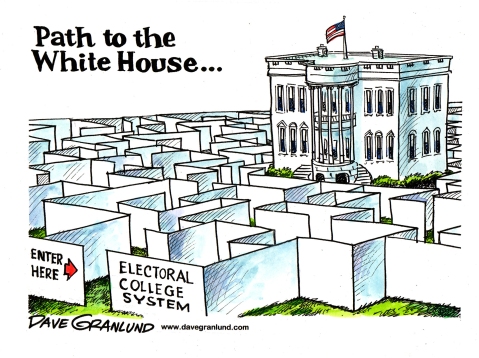
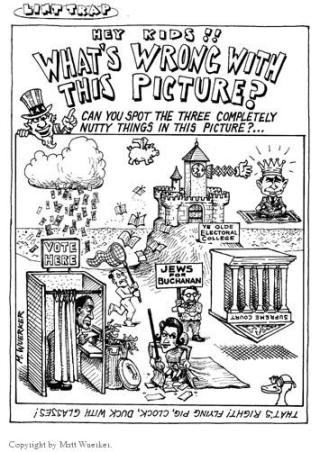 Now, for the second time in the young 21st century, the popular vote loser is
Now, for the second time in the young 21st century, the popular vote loser is 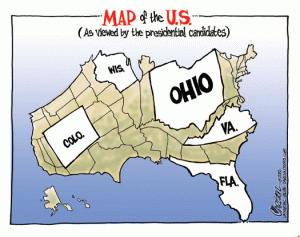 In the ICCPR, for example, the signatories
In the ICCPR, for example, the signatories 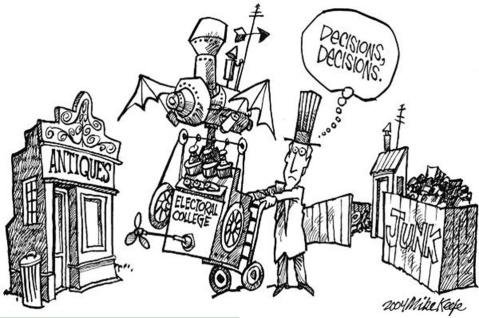
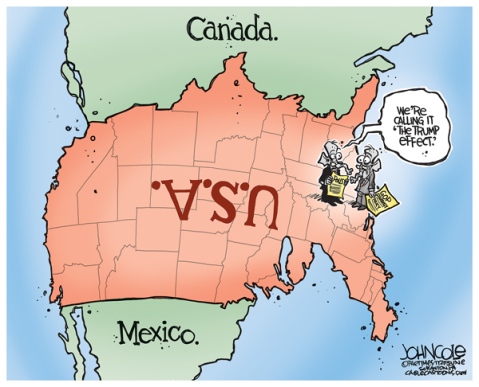

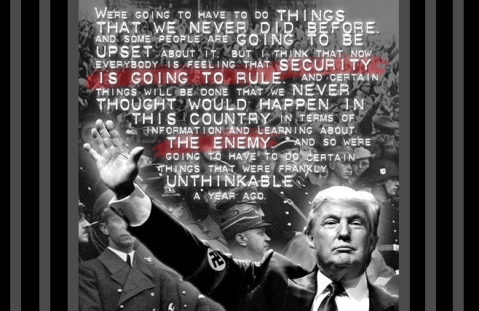
 Super Tuesday is afoot, with 661 delegates at stake in the Republican primary and 865 delegates for the Democrats. This means that a presidential candidate who does well could shift the momentum and change the media narrative in a way that fundamentally alters the course of Election 2016. Or not.
Super Tuesday is afoot, with 661 delegates at stake in the Republican primary and 865 delegates for the Democrats. This means that a presidential candidate who does well could shift the momentum and change the media narrative in a way that fundamentally alters the course of Election 2016. Or not.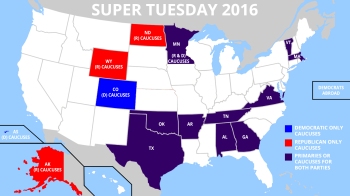 The big day, which could make or break several candidates on the Democratic and Republican sides (those who haven’t already dropped out after disappointing showings in earlier primary states), underscores the largely arbitrary and chaotic nature of United States primary elections, which are something of an oddity in advanced democracies.
The big day, which could make or break several candidates on the Democratic and Republican sides (those who haven’t already dropped out after disappointing showings in earlier primary states), underscores the largely arbitrary and chaotic nature of United States primary elections, which are something of an oddity in advanced democracies.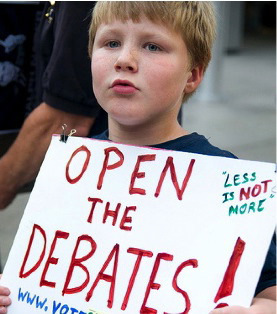 In the United States, which uses a strict and archaic winner-take-all system and erects severe obstacles to independent parties (including such challenges as stringent ballot access rules that
In the United States, which uses a strict and archaic winner-take-all system and erects severe obstacles to independent parties (including such challenges as stringent ballot access rules that 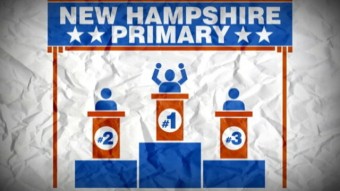 Because so much disproportionate weight is given to the states holding early primaries, including New Hampshire and Iowa, and because states holding primaries later – such as California – often don’t even get to vote for the same candidates (many of whom will have already dropped out by that time), the system is fundamentally flawed and effectively disenfranchises millions of would-be primary voters. (For example, New York, the third-largest state, voted after the nominees had been selected in both parties in 2000 and 2004.)
Because so much disproportionate weight is given to the states holding early primaries, including New Hampshire and Iowa, and because states holding primaries later – such as California – often don’t even get to vote for the same candidates (many of whom will have already dropped out by that time), the system is fundamentally flawed and effectively disenfranchises millions of would-be primary voters. (For example, New York, the third-largest state, voted after the nominees had been selected in both parties in 2000 and 2004.)